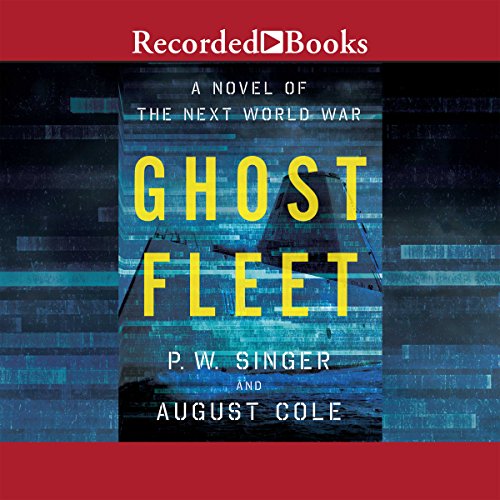
The year is 2026. China has taken over as the world’s largest economy, while the United States, mired in an oil shortage, struggles to adjust to its diminished role. Then, a surprise attack throws the US into a chaos unseen since Pearl Harbor. As the enemy takes control, the survival of the nation will depend upon the most unlikely forces: the Navy’s antiquated Ghost Fleet and a cadre of homegrown terrorists.
Ghost Fleet is unique in that every piece of technology featured in the novel already exists or is in the works. Peter W. Singer is Senior Fellow and Director of the 21st Century Defense Initiative at the Brookings Institution and a consultant for the US Department of Defense and FBI. August Cole is a journalist and writer specializing in national security issues and is an Adjunct Fellow at the American Security Project.

Technology versus old school ‘Ghost Fleet’ refers to the ships and planes that sit unused at different places in the US because technology has passed them by, but now they are needed. The plot is in the near future where it seems most wear viz glasses and stims are taken frequently and openly by the military in order to stay functioning.
A good new techno-thriller When I was in the 8th grade, I read Tom Clancy’s Red Storm Rising, envisioning the World War 3 that we were almost ready to believe would not happen. I then read a few other books on the subject, such as General Sir John Hackett’s The Third World War, which was much more dreadful. And much less engaging as a read.
Lost Potential I really wanted to like this book. Everything about it sounded interesting, including the description on the back cover. Alas, this book was not for me.